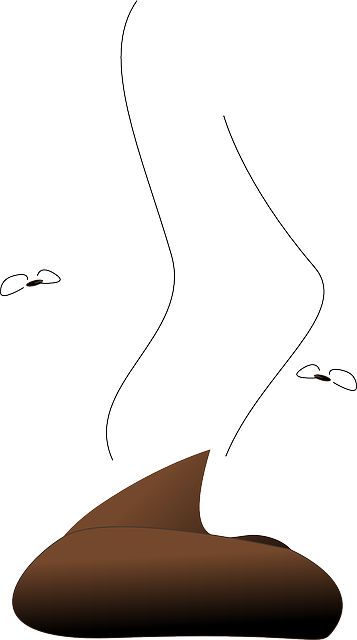If you expect to evolve spiritually, you must exert yourself. If you expect miracle to strike simply because you willed it, it’s not likely to happen. You must cultivate the terra firma of your soul so it flowers fruits. You must cleanse the vessel that carries the messages of wisdom and compassion. You must polish the instrument that ignites and channels the transcendental.
According to the Shurangama Sutra, a Mahayana Buddhist text that is revered for its teachings on meditation a long and powerful Buddhist mantra, here are four ways to dig deep into the soil of your soul, to bath your messenger, and to make your physical instrument for practice shine:
- Renounce or reduce taking of life.
Avoid animal products and foods that require hurting and killing living, feeling creatures. Be a vegetarian. With less demand for meat, supply stemming from slaughter may dwindle. Be a minimalist. When we consume less, others who lack may have a little more.
A carnivorous meditator, regardless of how advanced you are, will have to pay with future karma the life you just devoured. To deny that you will reincarnate according to the lives you’ve taken is to shout with your ears plugged, hoping that others will not be bothered.

Addressing monastics and enlightening beings exclusively, the Buddha elaborates that those who attempt compassion do not even walk on grass (to avoid killing small insects), wear silk, leather, or fur. Why would you try to satisfy your hunger by ingesting the flesh and blood of those who are also children and parents to their clan.
If you have ever accidentally burned or cut yourself, you might want to remember that an exponentially more searing pain had to repeat by force before your steak or other meats arrive at your dining table.
- Renounce or reduce theft.
Ideally, Buddhist teachings encourage you to share what you have materially, energetically, and intellectually with others, within means. You do so with equanimity, because ridicule and insults could be returned rather than rewards. A generous meditator would avoid taking what does not rightfully belong. Doing so would mean all merits from your practice go down the drain, a futile attempt such as trying to fill a sieve to the brim with water.

- Renounce or reduce sexual activities.
Contrary to my expectations, the Buddha addresses everyone, not just monastics, about renouncing or reducing physical and mental sexual fancies. He equates the progress that a meditator with libido makes to the outcome of a cook boiling sand in the hopes of sautéing up something edible.

Even for you who are in a committed monogamous relationship, try celibacy and unsexed stimulation for a time. Sex sells. Sexual objects abound. Watch what you insert into your sensory perceptions, mind, and body. Notice any effect on you, your partner, and your relationship throughout the process.
- Renounce or reduce dishonesty.
Interestingly, the most egregious lie according to the Buddha, is the claim that you are an enlightened sage. If you deceive in the hopes of acquiring adulation, respect, or gifts, you are constructing a major falsification. If you really are an enlightened being who appear as an ordinary individual or even a marginalized person — as enlightened beings do — you would keep this truth to yourself.

This is serious stuff. The Shurangama Sutra draws some graphic metaphors too. Ready? Were you to concoct and reveal your holiness, you would be comparable to a carving made of manure emitting only a rancid stench. Your goodness would be sliced off the way an ax resolutely ends the life of a fallen tree. You would be an unqualified impostor of a country’s admired leader, deceiving and stealing the identity of someone in a top post. You would be likened to a deluded savage who tries to swallow yourself up, probably by starting to chew up yourself one toe at a time.

Many sages throughout history and continents have taken on these lifestyle commitments to benefit their spiritual development, creatures large and small, and the planet. In a world where more is better, choosing to minimize or renounce certain materials and behaviors is refreshing, and surprisingly good for you and those around you.

These purifications have a way to make you stand straighter and taller physically, psychologically, and spiritually – areas that are very much interconnected. They are powerful practices that mandate daily, if not momentary, exercises of your conviction, discipline, and awareness. They are visible and measurable, not merely self-proclamations of enlightenment or lofty words about philosophical theorizations. Not only will these purification practices affect your karma in the long-run, but they can immediately provide benefits such as a clearer mind, more energy, more joy, and maybe some element of surprise as to how you are able to practice the way you do.
Pick one or more of these purifications and try it out for a day, a week, a month, a year or more. Notice the difference before and after.
An oral commitment to one or more persons or a written commitment to yourself or others will strengthen your dedication to sticking to your choices.
Reach for the core; get to the heart of the matter. By committing to these four ways to purify, you are keeping to the essentials of the practice, hence avoiding the many possibly petty but thorny problems that typically develop during intensive spiritual development.
But what if you’re in living situations that make it difficult for you do some of these things? What if your loved ones object to your trying some of these things? What if you just can’t seem to get out of the habit of doing certain things?
Sheer stubbornness does not work. The Buddha recommends a mantra, the Shurangama mantra specifically in this text, to turn your circumstances around so that your path may be one of ease. I will post an article about the Shurangama mantra and its benefits later.
Finally, these purification guidelines remind you to be cautious of those who incite your desire to harm, to indulge in lust, and to covet for what belongs to others, and worst of all, claim saintliness above others.